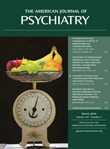Abstract
Objective
Bipolar disorder is highly comorbid with substance use disorders, and this comorbidity may be associated with a more severe course of illness, but the impact of comorbid substance abuse on recovery from major depressive episodes in these patients has not been adequately examined. The authors hypothesized that comorbid drug and alcohol use disorders would be associated with longer time to recovery in patients with bipolar disorder.
Method
Subjects (N=3,750) with bipolar I or bipolar II disorder enrolled in the Systematic Treatment Enhancement Program for Bipolar Disorder (STEP-BD) were followed prospectively for up to 2 years. Prospectively observed depressive episodes were identified for this analysis. Subjects with a past or current drug or alcohol use disorder were compared with those with no history of drug or alcohol use disorders on time to recovery from depression and time until switch to a manic, hypomanic, or mixed episode.
Results
During follow up, 2,154 subjects developed a new-onset major depressive episode; of these, 457 subjects switched to a manic, hypomanic, or mixed episode prior to recovery. Past or current substance use disorder did not predict time to recovery from a depressive episode relative to no substance use comorbidity. However, those with current or past substance use disorder were more likely to experience switch from depression directly to a manic, hypomanic, or mixed state.
Conclusions
Current or past substance use disorders were not associated with longer time to recovery from depression but may contribute to greater risk of switch into manic, mixed, or hypomanic states. The mechanism conferring this increased risk merits further study.



